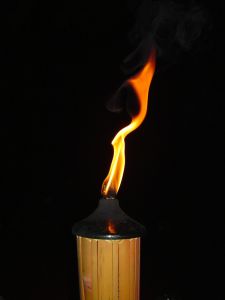Remembrance Sunday

I was staying in Canterbury when Remembrance Sunday happened this year. The place I was working at had a service to commemorate it, and all the evening before one of the lads in the house I was staying in was practicing playing the last post on his trumpet in preparation for this event.
I am, let’s face it, nothing that should well-dispose me towards the military, soldiers or war. I am not religious, and get genuinely annoyed when people try to make things alright by bringing God into it. I am not patriotic, and look forward to that happy day when the European Union absorbs all nationalities into one great big wishy-washy liberal estate in which diversity is celebrated, enjoyed, appreciated and doesn’t involve defining self by not being someone else. I regard nationalism as a dangerous exercise in tribal energies, for reasons I won’t go into, and the use of war as a means of settling conflict as so far down the list of absolute last resorts that it barely makes it onto the bottom of the page. That said, I do find myself in the dubious position of believing in humanitarian intervention, in the sense that it’s the logical continuation of the anti-nationalistic argument. It goes something like this: I am not a nationalist therefore I do not value British lives over any other, therefore if someone is butchering someone else in some other country in a way which is clearly brutal, cruel and preventable, we as human beings should intervene. Witness, for example, Rwanda. Are we truly going to say that it was Hutus killing Tutsis somewhere else and frankly their own problem and their own mess and therefore we should just let them get on with it? And having said the same, are we going to look ourselves in the mirror tomorrow morning and tell ourselves that we are proud members of the human race? Doubt it.
By this argument I should have been in favour of the invasions of Iraq and Afghanistan. And if the reasons for invasion had been humanitarian, and the purpose of the mission had been humanitarian, and the outcome of the mission had been for the good of all, I might have. But let’s face it, they weren’t. When history looks back and judges these two particular events, it’ll probably have to sum up something like this – you shouldn’t rush boiling an egg, because you might get food poisoning or the egg will go a bit bizarre in the pot. You shouldn’t rush overtaking because you might get hit by a truck. And above all else, above everything, above all things, you shouldn’t rush to use military means to settle a conflict, because you might just create the situation in which hundreds and hundreds of thousands of innocent civilians and passers-by are brutally killed in the chaotic storm of destruction that you unleash. And because when you put guns into someone’s hand, you have no options left, you can’t exactly turn round and say ‘well, the gun is actually a multi-purposed tool so really, don’t get the wrong idea’. And because when you start saying ‘this is bad’ and ‘this is good’ and draw an absolute moral line under the argument and then start shelling it, well then, you’ve left yourself no where else to go and no room for any other option than annihilation, and if you start that journey, you will not be able to end it unless by blood.
Or words to that effect.
All of which brings me back to Remembrance Sunday. In Canterbury this was celebrated in a very clear and noticeable way. There was a military band by the cenotaph, in full dress uniform; poppies on every other lapel, and a full service at the cathedral. In recent years, Remembrance Sunday has become less about the wars that were fought – World War One and Two which I would argue were the last conflicts in which there was something even remotely resembling an absolute moral argument to fight – and more about the wars of now. But the poppy is worn as a symbol of the First World War, for the millions of men who died in the most appalling conditions, fighting for generals who in this day and age would probably have been tried for callous waste of human life; in this day and age, we have become far more sensitive to the death of our soldiers. 60,000 men died on the Somme in just a few days, and that is what we remembered. Thousands died storming the beaches of Normandy, retreating from Dunkirk, going over the top at Yrpes, and that is what is remembered, and should be remembered. Not necessarily what was fought for, or why it was fought, or even whether it was worth fighting for, but that soldiers went over the top to fight for it, and died for it.





